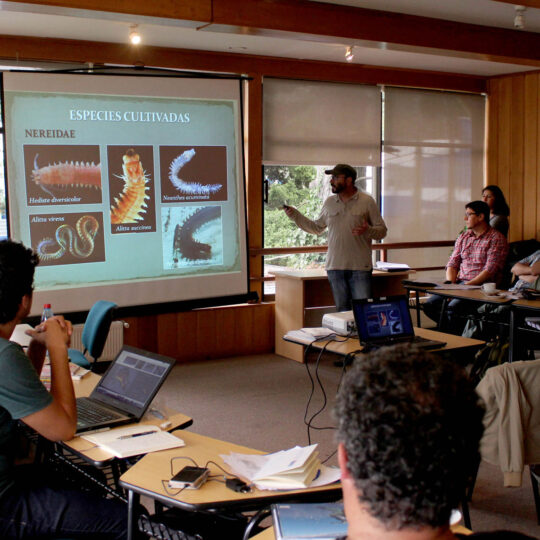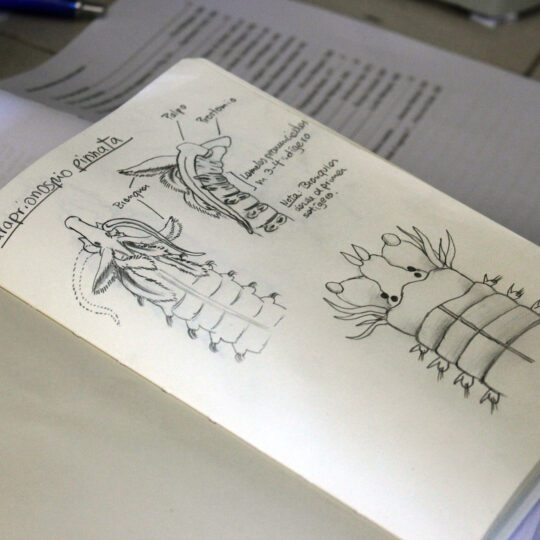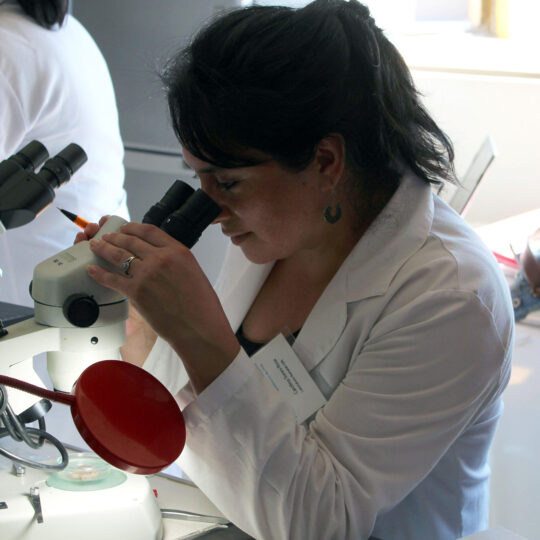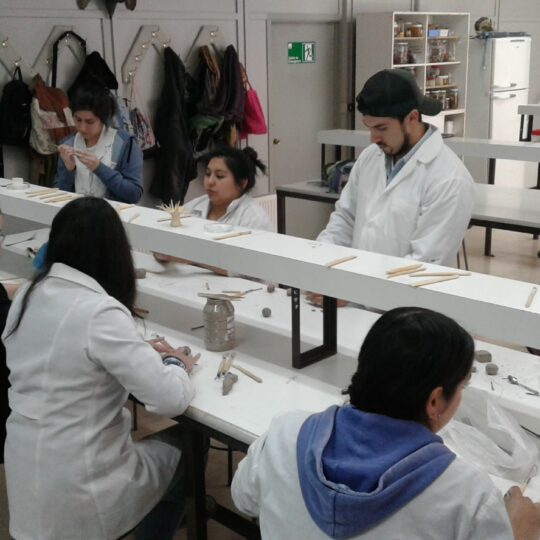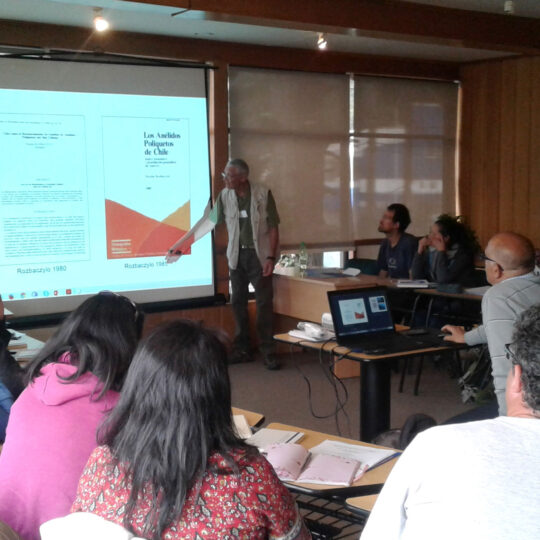Theoretical-Practical Workshops
The following theoretical and practical workshops will take place in the frame of SILPOLY 2022:
- Workshop "Reviewing polychaetes in Chile" by professors Oscar Díaz-Díaz and Nicolás Rozbaczylo
- Illustrated Polychaeta 2022, by Professors Fernanda Oyarzún and Felipe Portilla
- Genetics of Polychaeta, by Professor Cristian B. Canales-Aguirre
Examples of some of the species that will be offered for review at the Workshop:
- Platynereis magalhaensis
- Phragmatopoma virgini
- Phragmatopoma moerchi
- Marphysaaenea
- Marphysa gayi
- Sternaspischilensis
- Spiophanesbombyx
- Spiophanes duplex
- Cossura chilensis
- Eurythoecomplanata
- Notomastus spp. (populations of northern and southern Chile)
- Capitella spp. (populations of northern and southern Chile)
In this course co-organized by the VI SILPOLY and the Robsonella Project –creating a bridge between contemporary scientific illustration and research on Chile’s marine biodiversity – we will explore methodologies and the basic fundamentals of scientific illustration applied to current research, teaching and outreach of polychaeta. Students will learn the fundamentals of contemporary scientific illustration and its role inside and outside the academy in the study and communication of marine biodiversity in general, but especially focused on this taxon. To this end, the activities will be carried out in an intensive, face-to-face format over the three days following the end of SILPOLY 2022 at Centro i~mar of the Universidad de Los Lagos (¨*to participate in the course it is mandatory to be register at SILPOLY 2022). The three-day workshop will also be supported by material provided via email, one month in advance, to registered students including demonstrations of illustration techniques and other short videos recorded especially for this course. The Robsonella Project courses and workshops are characterized by the connection to current science and research and the support of a diversity of researchers from research centers and universities, as well as their resources, facilities, and support material. The course is designed for professionals and students in the fields of biological sciences and the environment, as well as for artists, illustrators and designers interested in visualizing knowledge of the natural history, biology, and ecology of marine organisms. The teachers – both scientists and artists – will encourage the interdisciplinary exploration of knowledge about this group and three fundamental techniques for scientific illustration (graphite, ink, and scratch). This face-to-face version, supported by audiovisual material delivered in advances, aims to be a space that helps those interested to explore contemporary scientific illustration, to help them connect with scientists and the research being carried out in the academy and with the visualization needs of science, aiming at producing images that contribute to the study and valuation of our threatened marine natural heritage.
Soon more information
It is mandatory to participate in SILPOLY 2022 to participate in any of the Theoretical-Practical Workshops.
More information with the description of each activity and registration fee will be available soon.


